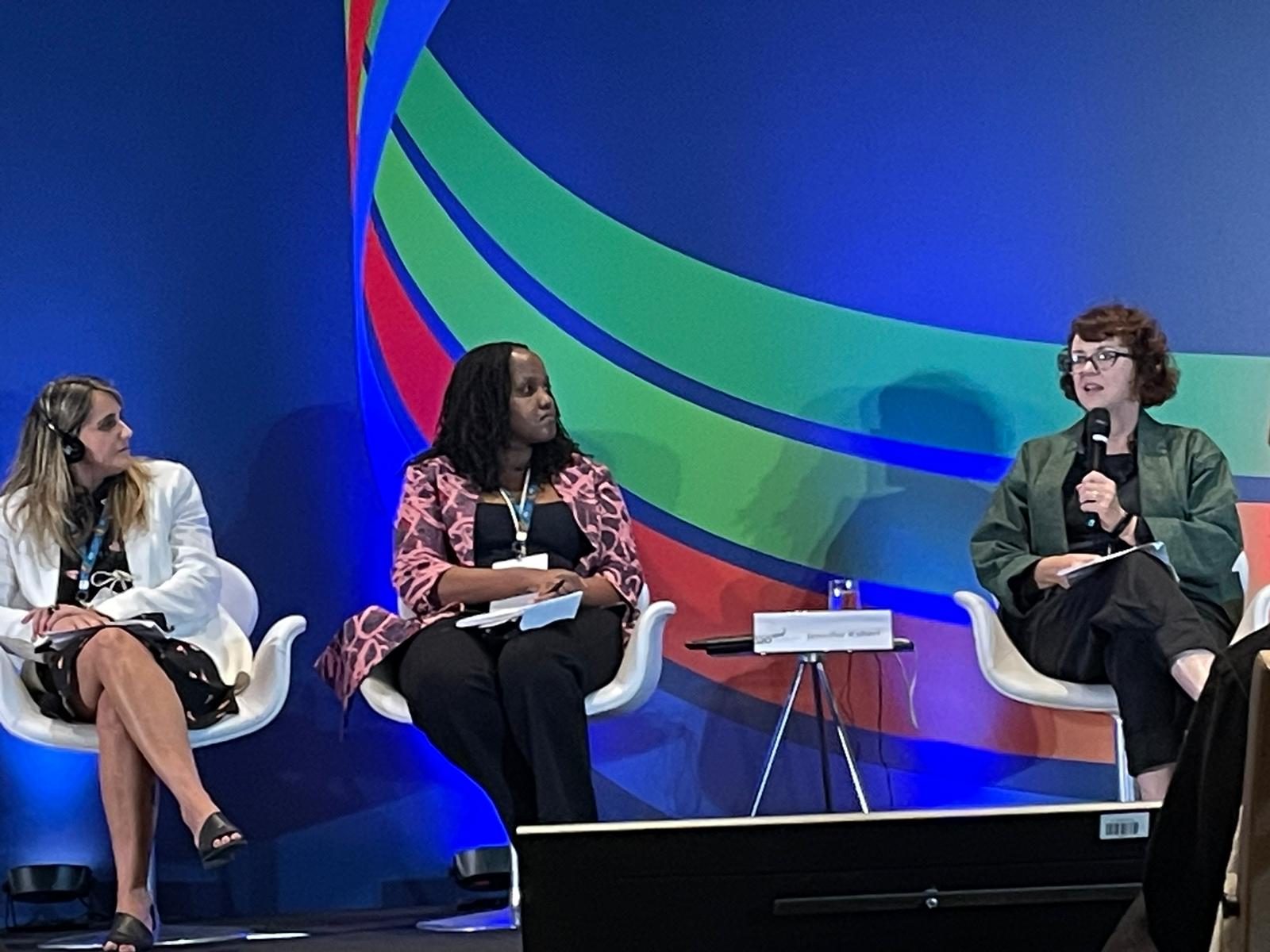Inquiry into civics education, engagement, and participation in Australia
Associate Professor Tanya Notley presenting at G20 working group Brazil
We currently live in an era where misinformation and disinformation spread rapidly, posing significant threats to our society, including the integrity of free and fair elections. To tackle this issue, the Joint Standing Committee on Electoral Matters adopted an inquiry into civics education, engagement, and participation in Australia.
On 23 May, the ICS member Tanya Notley, an expert in media literacy and digital inclusion, took the stage at a public hearing in Parliament to address the Joint Standing Committee on Electoral Matters. Tanya, who contributed a submission to the inquiry, has previously led two national longitudinal surveys on Adult Media Literacy in Australia with a team of researchers from Western Sydney University, Queensland University of Technology, and the University of Canberra.
At the event, Tanya shared her research findings and emphasised the urgent need to promote media literacy education to empower citizens to critically evaluate information sources. She highlighted that their 2024 Adult Media Literacy survey, which will be launched in August, found that only 4 in 10 adults feel confident they can check if information found online is true or not.
‘Over 2000 adults were tested to determine their ability to take basic steps to identify misinformation online, and very few Australians possess the basic skills needed to fact-check information across online environments” Tanya said.
"Relevant to this Inquiry is that our research shows that higher media literacy is associated with a higher level of civic participation. People who are more media literate are also more likely to use media for civic engagement in a thoughtful, careful and reflective way. This is because media literate citizens are able to make better decisions about what information to trust, but their media engagement also makes them feel more connected to society: both qualities are essential for democratic participation," Tanya stated.
Tanya's appearance follows her participation in the G20 Working Group meetings in Brazil titled “Promoting Information Integrity: Combating Disinformation, Hate Speech and Threats to Public Institutions Online.” Tanya represented the Australian Media Literacy Alliance (AMLA) at the meetings and shared the research findings on adult media literacy as part of her ongoing Linkage Project, Addressing Misinformation Using Media Literacy with Public Cultural Institutions.
In her submission to the Joint Standing Committee on Electoral Matters, Tanya touched on the 2023 Global Declaration on Information Integrity Online, which asserts that maintaining online information integrity requires focusing on three key areas:
- Regulating digital services to curb the spread of misinformation and online harms
- Promoting media literacy education to help citizens critically evaluate information sources
- Bolstering public interest journalism to ensure a consistent flow of reliable information.
Australia is among 34 signatories to the 2023 Global Declaration on Information Integrity Online.
Tanya noted that although Australia is making progress in addressing the first two areas, significant government resources have not yet been allocated to enhancing the media literacy of Australians, especially adults.
"While participating in the G20 Working Group meetings in Brazil, it was encouraging to see so many countries recognise the value and importance of media literacy in supporting thriving democracies," Tanya explained.
"We have a lot to learn from the responses other countries are taking. I hope to share some of these lessons with the Australian government as part of this inquiry."





